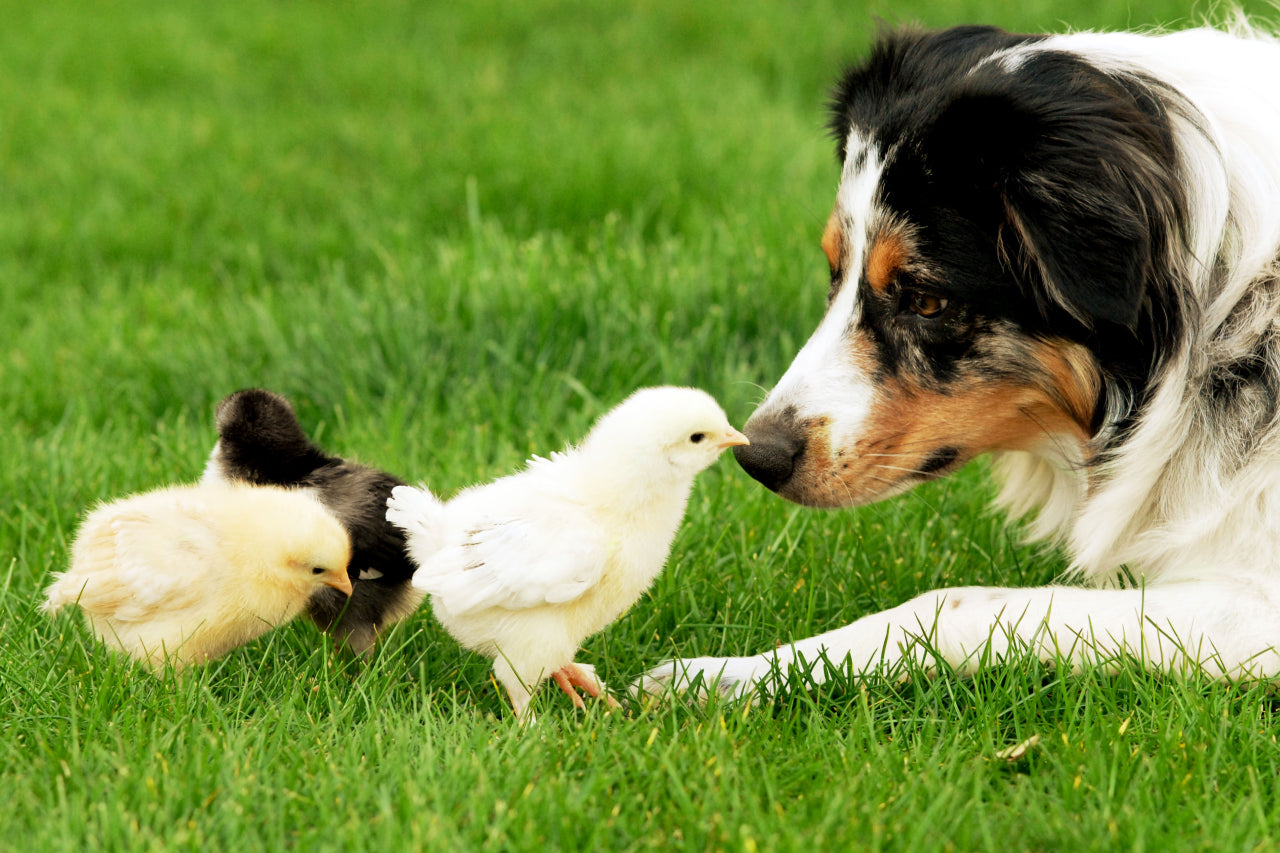
The Truth About Meat & Dairy Allergies For Dogs
Written By: Tiffany Ruiz Dasilva, VMD, cVMA | Professional Services Veterinarian, Wild Earth
When you walk into your local pet store and take a look at the variety of commercial dog foods available you will notice that most conventional kibble contains meat - typically beef and chicken.
Meat has become a central component of dog food, and is often touted as the first ingredient of “premium” foods. But did you know that meat, namely chicken and beef, are the most common food allergens for dogs?
In fact, recent studies have found that dogs are actually more likely to be allergic to the animal-based protein (aka meat) that is traditionally found in their dog food compared to other common dog food ingredients.
What Are The Most Common Food Allergens For Dogs?
A 2016 study by Professor Dr. Ralf Mueller, who is on the European Board of Veterinary Specialists, observed the most common food allergens for dogs in an effort to identify ingredients or categories of ingredients that can cause cutaneous adverse food reactions (CAFRs), i.e. skin reactions. The study tested hypersensitivities across a variety of common dog food ingredients. The study found that the most frequently reported food allergen was actually beef with 34% of all the dogs in the study showing signs of skin allergies when consuming beef.
The study analyzed many other ingredients and listed the following ingredients as the highest frequency of causing skin allergies or an immune system reaction for your dog:
- Beef (34% of the observed dogs saw signs of allergies)
- Dairy (17% of the observed dogs saw signs of allergies)
- Chicken (15% of the observed dogs saw signs of allergies)
- Wheat (13% of the observed dogs saw signs of allergies)
- Lamb (5% of the observed dogs saw signs of allergies)
These findings, as well as the customer success stories we have seen from dogs who have switched to Wild Earth, makes it apparent that meat may not be the best option as a protein source for dogs, especially those who are food allergic. Well then why do most dog foods contain meat? It is because of the misconception that dogs are carnivores.
Dogs Are Not Carnivores
For years, individuals around the world have mistakenly claimed that dogs are carnivores based on the perceived connection between modern dogs and wolves. This idea is perpetuated by the dog food industry, which has an interest in convincing people that their dogs require a diet based on animal products.
Contrary to popular belief, dogs are actually omnivores – meaning that they can digest and thrive on a nutritionally complete and balanced plant-based dog food, such as Wild Earth. Studies have shown that the modern dog is genetically different compared to wolves, and that they actually evolved from a group of wolves that is not extinct. Dogs have evolved alongside humans for thousands of years, eating their scraps which included fruits and vegetables. During the agricultural revolution dogs gained many copies of the gene responsible for starch digestion, just like humans did.
All of this to say that the “dogs are carnivores” theory is actually a fallacy that historical and nutritional studies have disproven. Compared to true carnivores, dogs have a lower protein and amino acid requirement, and are more able to use vitamin A and D from plant sources, just as people do. The reality is that dogs don’t need to eat meat, but they do need high quality protein. And you know what’s loaded with protein? Plants and fungi. The truth is, that the digestive system of a dog doesn't care where the protein comes from — it matters that the protein is high quality – meaning it is complete, highly digestible, and bioavailable.
Our vegan formulas contain yeast as the main source of protein, which is 49% protein by weight (compared to just 24% in beef). Yeast is also incredibly sustainable and contains all ten essential amino acids dogs need. Our Maintenance and Performance formulas are not only inherently free from the most common food allergens for dogs because they are free from animal-based proteins, but they are also wheat-free. By feeding a complete and balanced diet devoid of these common animal-based food allergens (and wheat), dogs can receive all the nutrition they need with none of the allergies.
What Are the Symptoms of Food Allergies for Dogs?
One of the most prevalent symptoms of food allergies in dogs is intense itching or scratching. Dogs may excessively lick, chew, or bite their paws, legs, belly, or other areas of the body. Itchiness can lead to skin redness, inflammation, and even infections. Recurrent ear infections are also common. Gastrointestinal issues such as diarrhea and vomiting, are surprisingly less common.
If you have noticed that your dog is suffering from these symptoms year-round then you might want to consider the possibility that they are suffering from a food allergy, and that the allergen is likely an animal-based protein. A vegan-based diet for your dog can help to eliminate common skin allergy symptoms such as itchy skin, immune system issues, digestive issues, as well as help to improve your dog’s overall health because of the high-quality ingredients utilized. You can read about the customer success stories that thousands of customers around the world have seen from switching to Wild Earth Cruelty-Free Dog Food.
Read Wild Earth Customer Success Stories
Relieve Your Dog of Their Daily Allergies
If your dog is suffering from food allergies then you should consider switching away from a meat-based diet. Many commercial dog food companies will have you believe that a dog needs meat to survive and be healthy, but this is not the case. A plant-based diet can provide your dog with all of the protein, fat, carbohydrates, vitamins, minerals, and antioxidants that they need to live a long and healthy life without any itching and scratching.



























